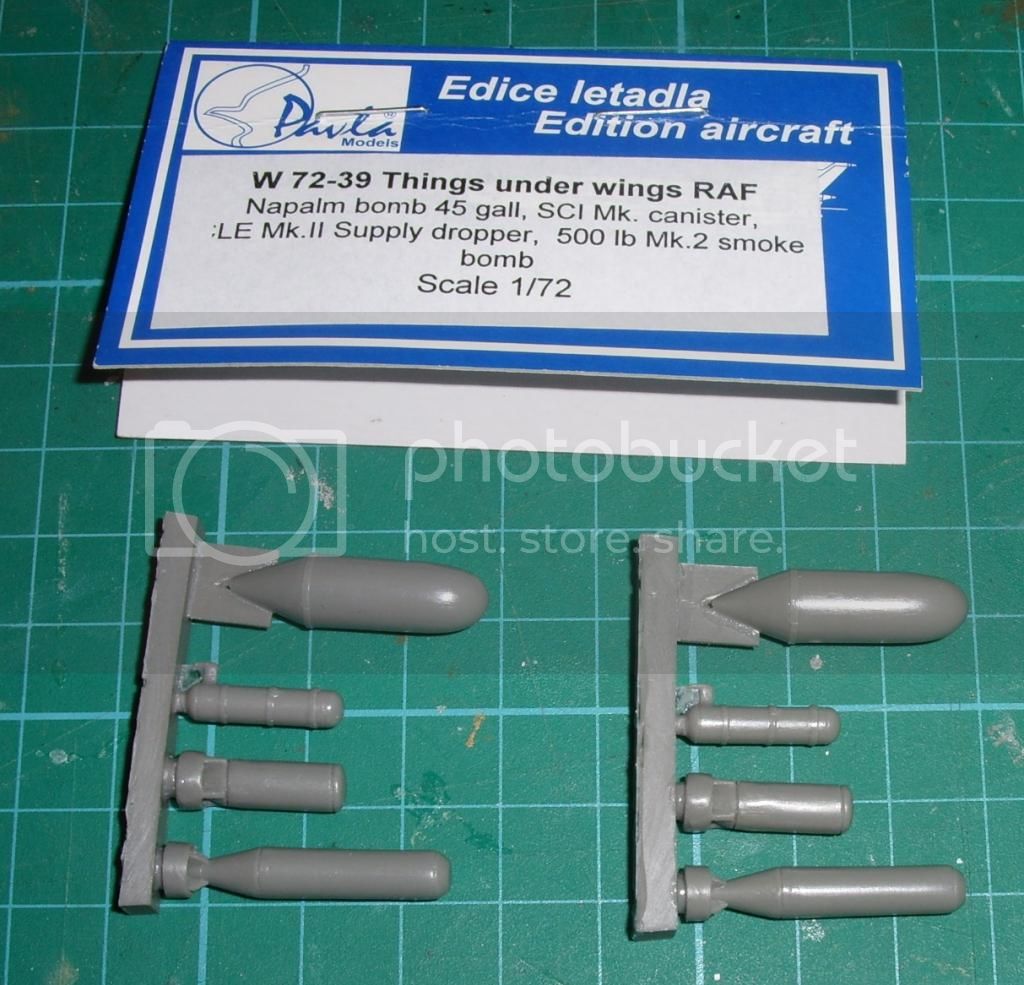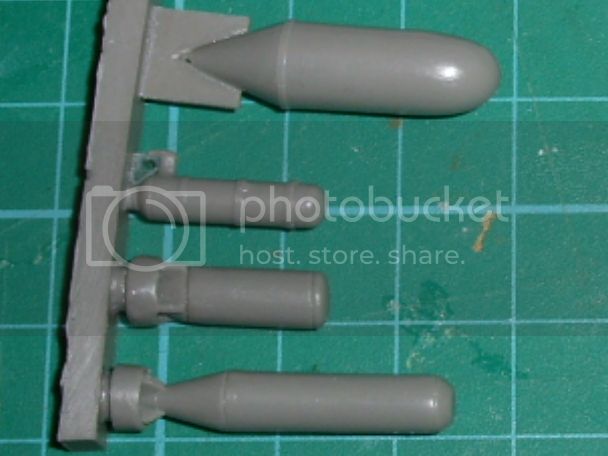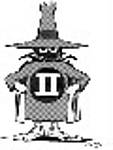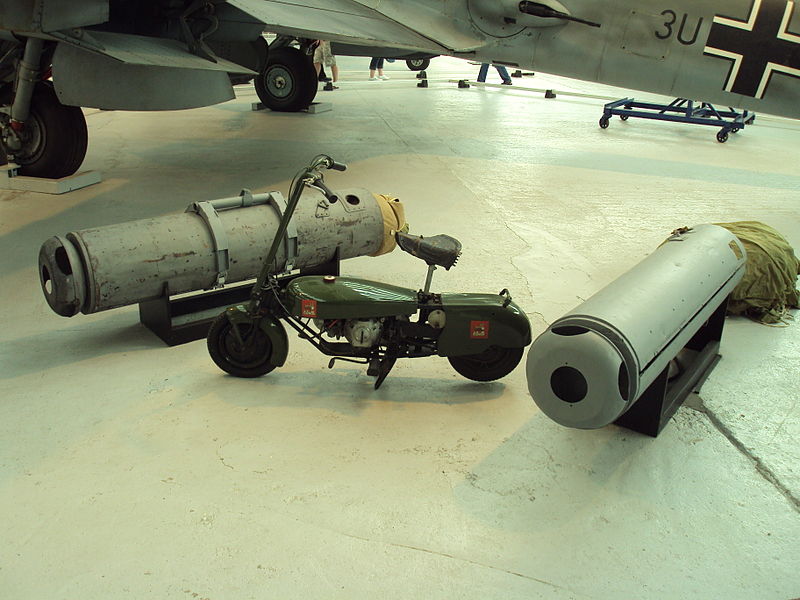I've just picked up a set of Pavla's 'Things under the Wings RAF' (W72-39) and I'm having a little difficulty working out whats exactly is what in the pack.
According to the card header the pack contains 45gal Napalm bomb, SCI Mk. Canister, LE Mk.II Supply Dropper and 500lb Mk.2 Smoke bombs. I've checked through my own references and googled but have found little in the way to identify what they are.

close up;

I think I'm on safe ground in saying that the the large tear drop shaped tank at the top is the Napalm, but as for the other's I'm stumped.

And what would be the most likely aircraft to carry them? Typhoons, Tempests and maybe FAA Corsairs lugging the napalm? The supply canisters in heavy bombers?
Any help is greatly appreciated.
Stephen



















